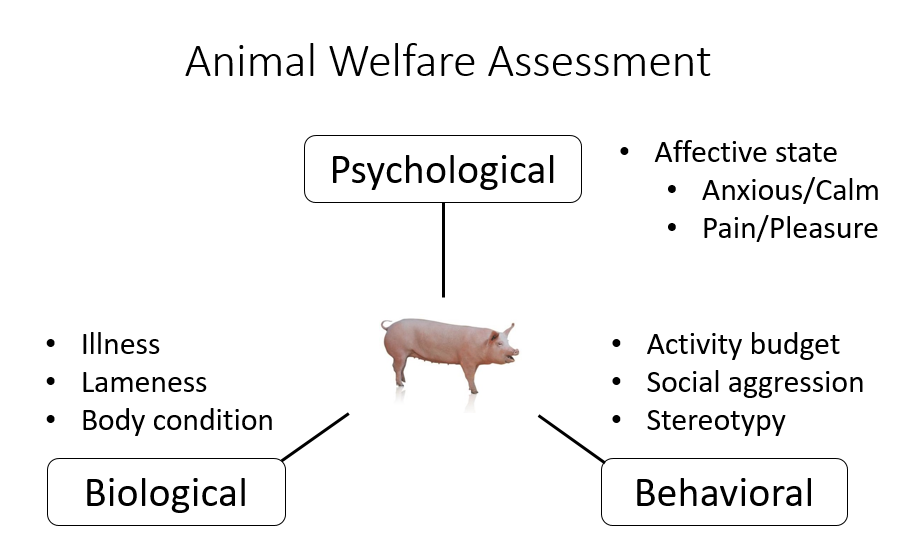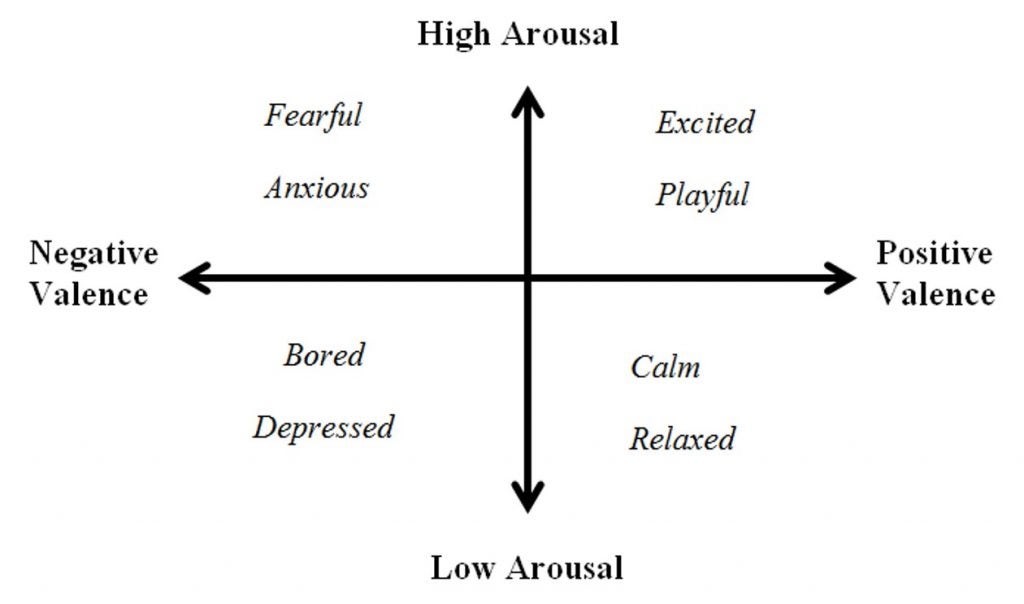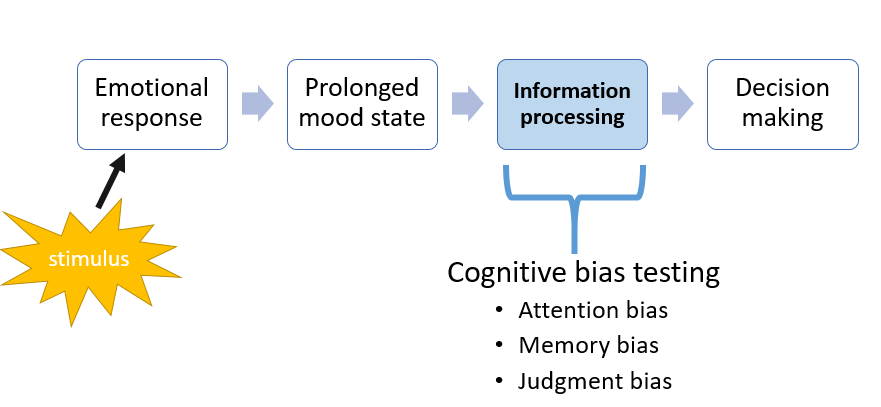What is an “affective state”?
Animal welfare is the biological and psychological state of an animal as it attempts to cope with its environment. Therefore, welfare includes both pleasurable and unpleasant mental states such as contentment, anxiety, and fear. While animals may display quick, emotional responses to a stimulus (such as a startle response when confronted with a predator), affective states are longer lasting mood states (such as anxiety or depression) which are not caused by a single stimulus but are the results of an accumulation of experiences.

How do you “measure” affective states in animals?
The emotional state of an animals can be estimated from physiological measurements like heart rate and glucocorticoid levels, in combination with behavior measurements (body posture, ear posture, pupil dilation). Interpretation of these measurements is difficult because they could reflect an emotion of both positive and negative valence. For example, an increase in heart rate or surge in cortisol or adrenaline all indicate high arousal, but can be associated with escape from predation (negative valence) or with the anticipation of a reward (positive valence).

Cognitive Bias Testing
An alternative metric for assessing the affective state of animals could be the cognitive bias task. Cognitive bias testing allows researchers to infer how an individual’s emotional state influences information processing, such as the amount of attention given to an unknown or threatening stimulus, or, the evaluation of ambiguous stimuli (is that unknown object a threat or not a threat?).
Research on human and non-human animals indicates that negative mental states, such as anxiety or depression, can induce preferential attention toward potentially threatening stimuli (visual, auditory), preferential memory of negative words, and pessimistic judgments of ambiguous stimuli. For example, animals living in barren or unpredictable housing conditions, or those which have recently experienced a painful procedure, may display negative cognitive biases; meaning that their emotional state has influenced their information processing.